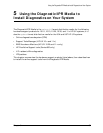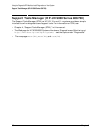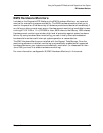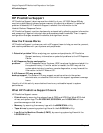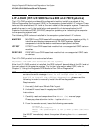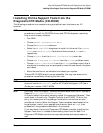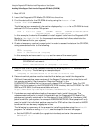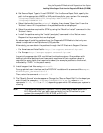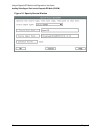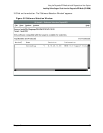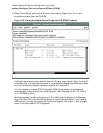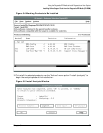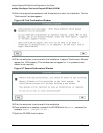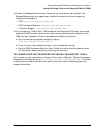
Chapter 5 63
Using the Diagnostic/IPR Media to Install Diagnostics on Your System
Installing Online Support Tools from the Diagnostic/IPR Media (CD-ROM)
b. Set Source Depot Type to “Local CDROM”. For the Source Depot Path, specify the
path to the appropriate HWCR or HW patch bundle for your system. For example,
/diagtemp/XSW800HWCR1020, /diagtemp/XSW700HW1020, or
/diagtemp/XSWHWCR1100.
c. Select the bundle from the swinstall display, then choose “Open Item” from the
“Actions” menu. All the patches in the patches bundle are displayed.
d. Select the patches required for STM by using the “Mark for Install” command in the
“Actions” menu.
e. Install the patches using the “Install (analysis)” command in the “Action menu.
Respond to the prompts that are displayed.
An advantage of installing patches from the Diagnostic/IPR Media is that only one
reboot is required for multiple kernel (OS) patches.
Alternately, you can obtain the patches through the HP Electronic Support Centers:
• For Americas and Asia-Pacific: http://us-support.external.hp.com/
• For Europe: http://europe-support.external.hp.com/
Log onto the appropriate URL and follow the directions given. One problem with
loading individual patches from these patch machines is that a system reboot is
required for every patch that requires a reboot (for example, patches to the kernel,
indicated by “PHKL” in the patch name).
8. Install support tool files using swinstall.
For a graphical user interface, set the DISPLAY variable with a command like export
DISPLAY=your_workstation:0.0 .
Then, enter the command swinstall -i.
9. The "Specify Source" window appears. Change the "Source Depot Path" to the depot you
wish to load; for example, /diagtemp/DIAGNOSTICS/B.xx.xx, where xx.xx
represents 10.10, 10.20, or 11.00, depending upon which OS release your system is
running.
NOTE The following examples (Figures 5-1 to 5-4) use a source depot path for a
B.10.20 bundle. Set your path appropriately for the OS version on your
system (for example B.11.00, B.10.20, or B.10.10).



